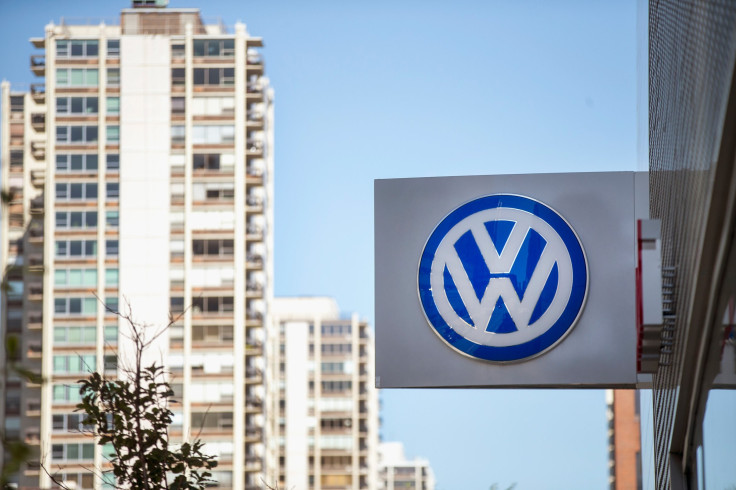Volkswagen Diesel Scandal: Here’s How Bad Volkswagen Sales Were Before The Company Was Caught Cheating

Even before Volkswagen Group was hit with what could turn out to be one of the costliest automotive recalls in history, the world’s largest automaker was a relatively small player in the United States, the world’s second-largest and most profitable automotive market. The company's rivals have been selling pickup trucks, sedans and SUVs as fast as they can make them amid historically high demand from car-crazy Americans, but Volkswagen has sputtered along like a battered, old Beetle.
Now that the German maker of Volkswagen hatchbacks, Audi SUVs and Porsche sports cars has been hit with a crippling scandal involving the deception of customers and emissions regulators, whatever gains Volkswagen has been able to squeeze out this year in the U.S. seem likely to be more than wiped out as customers see the Volkswagen name splayed across headlines next to words like “scandal,” “Dieselgate” and “guilty.”
“It’s going to be a rough rest of the year for them, and obviously into 2016,” said Akshay Anand, senior analyst at Kelley Blue Book. “I’ll be surprised if they come close to their sales from last year. For consumers, there are plenty of alternatives to what Volkswagen is offering.”
On the upside: Consumers might find enticing offers for specific non-diesel Volkswagen sedans in the coming months, he added. “But don't expect a $20,000 Jetta suddenly going out the door for $13,000.”
Most of the world’s automakers will report their U.S. September sales figures on Oct. 1. U.S. consumers likely purchased about 1.4 million new cars, pickup trucks and SUVs in September for an estimated seasonally adjusted annualized rate of around 17.6 million, according to forecasts from automotive sales data providers Kelley Blue Book and Edmunds.com.
Ford is likely leading September sales on strong demand for its F-Series trucks, Transit vans and line of SUVs, while South Korean sibling automakers Hyundai and Kia will benefit from demand for sedans from fleet buyers, like car rental agencies.
“Volkswagen’s deception is dominating headlines, but it is not keeping shoppers away from other brands’ showrooms,” said Jessica Caldwell, Edmunds.com director of industry analysis. “It puts the crisis in a little bit of perspective, since these Volkswagen diesels don't constitute a very big share of sales."
Automakers with newer SUVs and pickup trucks, like Ford, have been faring better than automakers that depended on sedans, like Honda. But every major automaker is expected to grow sales this month compared to last year, most of them in the double digits — except for Volkswagen, which may have seen sales drop 2 percent compared to the same month last year.
Volkswagen admitted on Sunday that it placed code in its small clean-diesel engine calibration software that enabled exhaust cleaning mechanisms only when the vehicles were undergoing emissions-compliance testing. In regular driving operations, the exhaust scrubbing would deactivate in order to boost fuel economy and performance. With the cleaning process disabled, the cars emit up to 40 times the legal amount of nitrogen oxides permitted under U.S. federal and state emissions standards. The greenhouse gas not only contributes to global warming but also is a key component in urban ozone pollution, a proven public health risk.
The cars in question are the diesel versions of the 2009-14 Jetta, Beetle and Golf, the 2014-15 Passat and the 2009-15 Audi A3. As many as 11 million cars worldwide could be affected, including 482,000 in the United States. Though the company has yet to issue a recall, Volkswagen has ordered dealers in the U.S. not to sell the diesel cars involved in the deception. Volkswagen AG (FRA:VOW) shares were down 3.28 percent to 115.68 euros ($129.38) as news the company’s emissions-cheating shenanigans spread to Europe, where Volkswagen’s diesel cars are far more popular.
The timing of the Labor Day holiday, one of the most important sales events of the year for dealers, boosted September numbers this year. Last year, Labor Day sales were booked in August.
Despite the loss of some sales to September, August’s numbers were the best in a decade, showing that consumers are confident enough with their situations to take out auto loans to fuel this boom. Total U.S. new-auto deliveries have been strong enough this month to keep the year’s total U.S. new vehicle sales on track for an unprecedented seventh consecutive year of growth, around 17.5 million, up from a decadeslong low of 10.4 million in 2010 amid the global economic crisis.
Interest rates will likely begin to rise before the end of the year, but many in the auto industry expect it won’t have a measurable impact on demand for auto loans until rates are increased throughout 2016, or the U.S. economy takes a turn for the worse. U.S. consumer confidence spurred by increasing home prices and lower unemployment has urged Americans to flock to dealerships. Historically low interest rates, a steady subprime lending market, and lenders’ willingness to extend financing to as much as 84 months have also helped spur consumption.
© Copyright IBTimes 2024. All rights reserved.






















